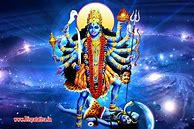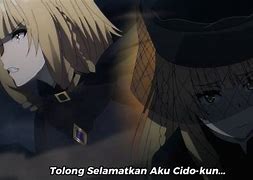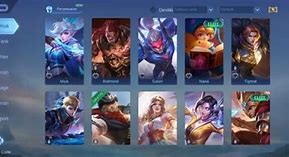
Alternate account from the Shu Ji
The Shu Ji mentioned that Sun Quan initially wanted to keep Guan Yu alive in the hope of using Guan Yu to help him counter Liu Bei and Cao Cao. However, his followers advised him against doing so by saying, "A wolf shouldn't be kept as a pet as it'll bring harm to the keeper. Cao Cao made a mistake when he refused to kill Guan Yu and landed himself in deep trouble. He even had to consider relocating the imperial capital elsewhere. How can Guan Yu be allowed to live?" Sun Quan then ordered Guan Yu's execution.[Sanguozhi zhu 9]
Pei Songzhi disputed this account as follows:
According to (Wei Zhao's) Book of Wu, when Sun Quan sent Pan Zhang to block Guan Yu's retreat route, Guan Yu was executed after he was captured. Linju was about 200 to 300 li away from Jiangling, so how was it possible that Guan Yu was kept alive while Sun Quan and his subjects discussed whether to execute him or not? The claim that 'Sun Quan wanted to keep Guan Yu alive for the purpose of using him to counter Liu Bei and Cao Cao' does not make sense. It was probably meant to silence smart people.[Sanguozhi zhu 10]
Sun Quan sent Guan Yu's head to Cao Cao, who arranged a noble's funeral for Guan Yu and had his head properly buried with full honours.[Sanguozhi zhu 11] In October or November 260, Liu Shan granted Guan Yu the posthumous title "Marquis Zhuangmou" (壯繆侯).[Sanguozhi 20][Sanguozhi others 19] According to posthumous naming rules in the Yi Zhou Shu, "mou" was meant for a person who failed to live up to his reputation.[12]
Legasi dan Pengaruh Budaya
Warisan Guan Yu menjangkau jauh melangkaui halaman sejarah dan kesusasteraan, meresapi setiap aspek budaya dan masyarakat Cina. Imejnya dihormati di kuil dan kuil di seluruh China, di mana dia disembah sebagai dewa perang dan perlindungan. Perbuatan lagendanya telah mengilhamkan banyak karya seni, kesusasteraan dan budaya popular, daripada opera Cina klasik kepada filem dan permainan video moden.
Kesimpulannya, 关羽 (Guan Yu) kekal sebagai tokoh yang menjulang tinggi dalam sejarah dan mitologi China, dihormati sebagai simbol kesetiaan, penghormatan, dan kebajikan mempertahankan diri. Kisahnya terus memikat penonton di seluruh dunia, berfungsi sebagai peringatan abadi tentang kuasa keberanian, integriti, dan persaudaraan. Sambil kita meraikan legasinya, marilah kita menghormati semangat Guan Yu dan berusaha untuk menerapkan sifat mulianya dalam kehidupan kita sendiri.
A. Kisah Guan Yu yang Berwajah Merah
Bentuk tubuhnya yang tinggi besar, berjenggot panjang dan berwajah merah kehitaman. Tentang wajahnya yang berwarna merah ini terdapat sebuah cerita tersendiri yang tidak terdapat dalam novel San Guo Yan Yi (三國演義) karangan Luo Guanzhong (羅貫中), seorang sastrawan di jaman Dinasti Ming (1368 – 1644).
Dalam novelnya, Beliau mengambil referensi dari literatur sejarah resmi mengenai jaman Tiga Negara di Tiongkok, dimulai dari penghujung Dinasti Han (202 SM – 220 M), lalu dilanjutkan dengan masa penuh gejolak hingga pecahnya wilayah Tiongkok ke dalam 3 Negara, dan kemudian dipersatukan kembali di bawah Dinasti Jin (266 – 420).
Bertahan selama lebih dari 4 abad, periode Dinasti Han dianggap sebagai jaman keemasan dalam sejarah Tiongkok. Hingga saat ini, kelompok etnis mayoritas Tiongkok menyebut diri mereka sebagai “etnis Han”, dan aksara Tionghoa disebut sebagai “aksara Han”.
Selain dari sejarah resmi, Luo juga mengambil referensi dari cerita rakyat turun temurun yang dituturkan secara lisan di masyarakat pada masa hidupnya, pada abad ke-14.
Diceritakan pada suatu hari dalam pengembaraannya, Guan Yu berjumpa dengan seorang tua yang sedang menangis sedih. Ternyata anak perempuan satu2 nya dengan siapa hidupnya bergantung, dirampas oleh wedana setempat (kepala wilayah administrasi pemerintah, setingkat dibawah kabupaten) untuk dijadikan gundik.
Guan Yu yang berwatak budiman dan tidak suka perbuatan sewenang2 semacam ini, naik darah. Dibunuhnya wedana yang jahat itu, dan sang gadis dikembalikan kepada orang tuanya. Tetapi dengan perbuatan ini menjadikan Guan Yu sekarang menjadi buronan.
Dalam pelariannya, Ia sampai di Dong Guan, Shanxi. Ia lalu membasuh mukanya di sebuah sungai kecil yang terdapat di pergunungan itu.
Seketika rupanya berubah menjadi merah, hingga tidak dapat dikenali lagi. Dengan mudah, Ia menyelip diantara para petugas yang diperintahkan untuk menangkapnya tanpa diketahui. Riwayat Beliau selanjutnya dan sampai akhir hayatnya ditulis dengan sangat indah dalam novel Sam Kok yang terkenal itu.
Baca juga : Inilah Patung Guan Yu Terbaru Yang Dibuat Seberat 1320 Ton
Dubious account from the Dianlue
The Dianlue recorded:
When Guan Yu was besieging Fancheng, Sun Quan sent a messenger to Guan Yu to offer aid while secretly instructing the messenger to take his time to travel there. He then sent a registrar ahead to meet Guan Yu first. Guan Yu was unhappy that Sun Quan's offer came late because he had already captured Yu Jin by then. He scolded the messenger, "You raccoon dogs dare to behave like this! If I can conquer Fancheng, what makes you think I can't destroy you?" Although Sun Quan felt insulted by Guan Yu's response, he still wrote a letter to Guan Yu and pretended to apologise and offer to allow Guan Yu to pass through his territory freely.[Sanguozhi zhu 7]
Pei Songzhi commented on the Dianlue account as follows:
Although Liu Bei and Sun Quan appeared to get along harmoniously, they were actually distrustful of each other. When Sun Quan later attacked Guan Yu, he dispatched his forces secretly, as mentioned in Lü Meng's biography: '[...] elite soldiers hid in vessels disguised as civilian and merchant ships.' Based on this reasoning, even if Guan Yu did not seek help from Sun Quan, the latter would not mention anything about granting Guan Yu free passage in his territory. If they genuinely wished to help each other, why would they conceal their movements from each other?[Sanguozhi zhu 8]
By the time Guan Yu retreated from Fancheng, Sun Quan's forces had occupied Jiangling and captured the families of Guan Yu's soldiers. Lü Meng ordered his troops to treat the civilians well and ensure that they were not harmed.[j] Most of Guan Yu's soldiers lost their fighting spirit and deserted and went back to Jing Province to reunite with their families. Guan Yu knew that he had been isolated so he withdrew to Maicheng (麥城; in present-day Dangyang, Hubei) and headed west to Zhang District (漳鄉), where his remaining men deserted him and surrendered to the enemy. Sun Quan sent Zhu Ran and Pan Zhang to block Guan Yu's retreat route. Guan Yu, along with his son Guan Ping and subordinate Zhao Lei (趙累), were captured alive by Pan Zhang's deputy Ma Zhong (馬忠) in an ambush. Guan Yu and Guan Ping were later executed by Sun Quan's forces in Linju (臨沮; in present-day Nanzhang County, Hubei).[Sanguozhi 19][Sanguozhi others 17][Sanguozhi others 18]
Citations from volume 36 of the Sanguozhi
Citations from elsewhere in the Sanguozhi
C. Kisah Guan Yu Yang Terluka dan Diobati Tabib Hua Tuo
Kisah lainnya tentang perawatan luka dengan menyekrap tulang. Tatkala itu, ia berperang melawan pasukan Negara Wei (Ca0 Cao), Guan Yu terluka oleh panah beracun. Tabib Hua Tuo (華佗) menyembuhkan luka beracun tersebut dengan cara menyekrap tulang.
Hua Tuo pun menggunakan pisau untuk menyekrap racun yang sudah merasuk ke tulang, hingga mengeluarkan bunyi. Guan Yu tidak bergeming, dan terus makan dan minum sambil bermain catur dengan muka senyum; sama sekali tidak tersirat wajah yang menahan sakit.
Tabib sakti Hua Tuo memuji Beliau dengan berkata : “Jenderal benar2 seorang Dewa yang datang dari langit.”
Baca juga : Tabib Hua Tuo; Dewa Pengobatan
Sun-Liu territorial dispute
During the mid 210s, a territorial dispute broke out between Liu Bei and Sun Quan in southern Jing Province. According to an earlier arrangement, Liu Bei "borrowed" southern Jing Province from Sun Quan to serve as a temporary base; he would have to return the territories to Sun Quan once he found another base. After Liu Bei seized control of Yi Province, Sun Quan asked him to return three commanderies but Liu Bei refused. Sun Quan then sent his general Lü Meng to lead his forces to seize the three commanderies. In response, Liu Bei ordered Guan Yu to lead troops to stop Lü Meng.[Sanguozhi others 12] Gan Ning, one of Lü Meng's subordinates, managed to deter Guan Yu from crossing the shallows near Yiyang. The shallows were thus named 'Guan Yu's Shallows' (關羽瀨).[Sanguozhi others 13] Lu Su (the overall commander of Sun Quan's forces in Jing Province) later invited Guan Yu to attend a meeting to settle the territorial dispute. Around 215, after Cao Cao seized control of Hanzhong Commandery, Liu Bei saw that as a strategic threat to his position in Yi Province so he decided to make peace with Sun Quan and agreed to divide southern Jing Province between his and Sun Quan's domains along the Xiang River. Both sides then withdrew their forces.[Sanguozhi others 14]
In 219, Liu Bei emerged victorious in the Hanzhong Campaign against Cao Cao, after which he declared himself "King of Hanzhong" (漢中王). He appointed Guan Yu as General of the Vanguard (前將軍) and bestowed upon him a ceremonial axe. In the same year, Guan Yu led his forces to attack Cao Ren at Fancheng and besiege the fortress. Cao Cao sent Yu Jin to lead reinforcements to help Cao Ren. It was in autumn and there were heavy showers so the Han River overflowed. The flood destroyed Yu Jin's seven armies. Guan Yu had prepared his navy to advance during the flood, and Yu Jin surrendered to Guan Yu while his subordinate Pang De refused and was executed by Guan Yu. Various local officials such as Administrator of Nanxiang Fu Fang and Inspector Jing Province Hu Xiu defected to Guan Yu. Angered by Cao Cao's forced labor put upon them, rebel peasants and bandits in Liang(梁), Jia(郟) and Luhun(陸渾) also submitted to Guan Yu and received official seals to work as his raiders. Guan Yu's fame spread throughout China.[Sanguozhi 15][11]
The Shu Ji recorded that before Guan Yu embarked on the Fancheng campaign, he dreamt about a boar biting his foot. He told his son Guan Ping, "I am growing weaker this year. I might not even return alive."[Sanguozhi zhu 5]
With Liu Bei gaining Hanzhong as well as the northwest commanderies of Jing: Fangling, Shangyong and Xicheng; and now after Yu Jin's defeat, Cao Cao contemplated relocating the imperial capital from Xu further north into Hebei to avoid Guan Yu, but Sima Yi and Jiang Ji told him that Sun Quan would become restless when he heard of Guan Yu's victory. They suggested to Cao Cao to ally with Sun Quan and get him to help them hinder Guan Yu's advances; in return, Cao Cao would recognise the legitimacy of Sun Quan's claim over the territories in Jiangdong. In this way, the siege on Fancheng would automatically be lifted. Cao Cao heeded their suggestion. Previously, Sun Quan had sent a messenger to meet Guan Yu and propose a marriage between his son and Guan Yu's daughter. However, Guan Yu not only rejected the proposal, but also scolded and humiliated the messenger. Sun Quan was enraged.[Sanguozhi 16]
E. Penghormatan Guan Yu Sebagai Dewa Dalam Taoisme dan Buddhisme
Sebagai Dewa, Kwan Kong dipuja oleh umat Taoisme, Konfusianisme, dan Buddhisme, Kaum Taoist memujanya sebagai Dewa pelindung dari malapetaka peperangan. Kaum Konfusianisme menghormati sebagai Dewa Kesusasteraan; sementara kaum Buddhist memujanya sebagai Hu Fa Qie Lan atau Qie Lan Pelindung Dharma.
Menurut kepercayaan kaum Buddist, setelah Kwan Kong meninggal arwahnya muncul di hadapan Biksu Pu Jing, di kuil Yu Quan Si yang terletak di gunung Yu Quan Shan, propinsi Hubei. Biksu Pu Jing disebutkan pernah menolong Kwan Kong yang akan dicelakai seorang panglima Cao Cao, dalam perjalanannya bergabung dengan pasukan Liu Bei.
Setelah itu, karena takut pembalasan Cao Cao, Biksu Pu Jing menyingkir ke gunung Yu Quan Shan, dan mendirikan Kuil Yu Quan Si. Setelah lebih dari 1000 tahun sejak peristiwa itu, Kwan Kong pun dipuja sebagai Boddistsatwa Pelindung Buddha Dharma.
Penghormatan terhadap Kwan Kong sebagai orang kesatria yang teguh terhadap sumpahnya, tidak goyah akan harta kekuasaan dan kedudukan, serta setia terhadap saudara2 angkatnya, menyebabkan ia memperoleh penghormatan yang tinggi oleh Kaisar-Kaisar pada jaman berikutnya.
Kwan Kong memperoleh gelar yang tidak tangung2. Ia disebut ‘Di’ yang berarti (disetarakan) ‘Maha Raja“. Sejak itu, Ia disebut Guan Di atau Guan Di Ye (Hokkian : Koan Te Ya) yang berarti “Paduka Maha Raja Guan”, sebutan gelar Kedewaan yang sejajar dengan Xuan Tian Shang Di.
Baca juga : Kitab Suci Guan Sheng Di Jun (Guan Gong)























